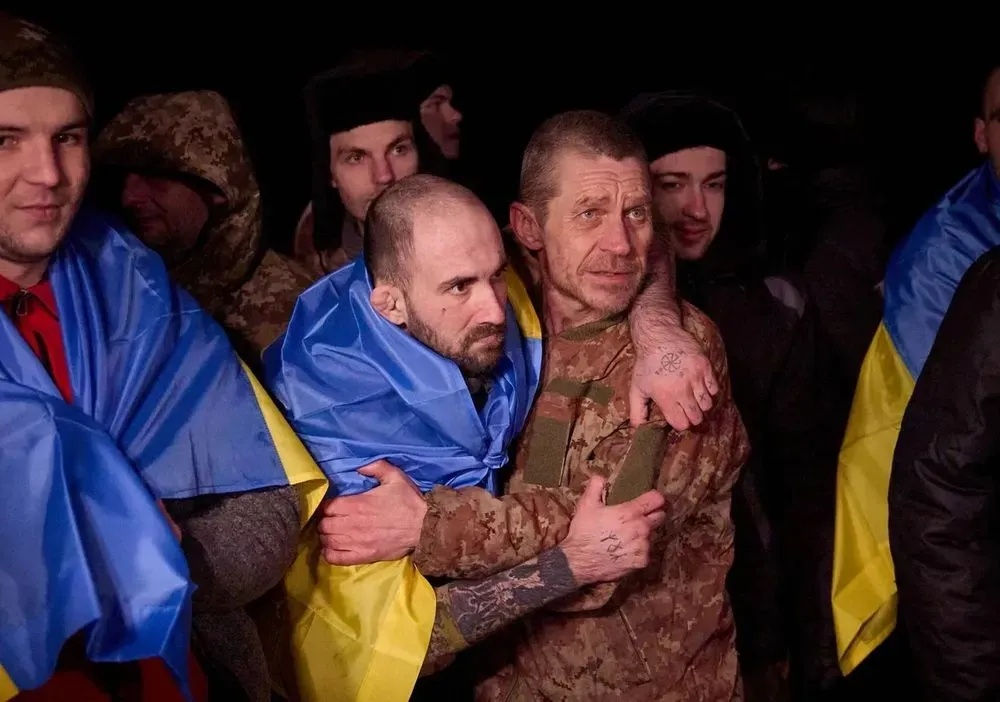Ukraine is looking for new mechanisms to release Ukrainians from Russian captivity - Ombudsman
Kyiv • UNN
Ukraine is looking for new ways to release prisoners from Russia, emphasizing the urgency of releasing those held in Olenivka, Ombudsman Dmytro Lubinets said.

Ombudsman Dmytro Lubinets said that Ukraine is looking for new mechanisms to release Ukrainians from Russian captivity. He also emphasized that it is fundamentally important to release all prisoners, especially those who were held in Olenivka. UNN reports this with reference to the OP.
Head of the President's Office Andriy Yermak met with relatives of servicemen who were injured or killed as a result of Russia's war crime in Olenivska colony.
The meeting was also attended by, among others, the Chief of the Defense Intelligence of Ukraine Kyrylo Budanov and Ombudsman Dmytro Lubinets.
Yermak thanked the families and friends of the soldiers for the meeting and emphasized that the priority for President Volodymyr Zelenskyy and all members of his team is the release of all Ukrainians from captivity, both military and civilian.
To bring back home all our heroes and all your loved ones who are still in captivity there... We will not stop working on this
Mr. Yermak noted that the work in this direction is ongoing despite the cynicism and hypocrisy of the representatives of the aggressor state and the constant change of demands.
He noted that the process is complicated by the fact that today there is no international organization in the world that can demonstrate a significant result in the release of prisoners held by Russia. Therefore, Ukraine is acting on its own and engaging the help of its partners.
Yermak emphasized the importance of bringing Russian war criminals to justice in international courts. According to him, the development of appropriate effective mechanisms for investigating crimes against the Ukrainian people and bringing the perpetrators to justice is underway. Evidence of crimes committed on the territory of Ukraine by representatives of the aggressor state is also being collected: from the leadership of the Russian Federation to ordinary perpetrators of these crimes.
In particular, Andriy Yermak reminded that human rights organizations and the public association "Community of Olenivka Families", with the assistance of the Coordination Headquarters, prepared a submission to establish the facts of serious violations of the Third Geneva Convention with evidence of intentional killing, causing serious bodily harm and other violations of international humanitarian law as a result of the explosion in the Olenivka colony, which was submitted to the commissioners of the UN Independent International Commission of Inquiry on September 1 last year.
The Head of the President's Office noted that with the support of the Coordination Headquarters, human rights organizations are working on preparing a submission to the International Criminal Court
Budanov, for his part, reminded that the Coordination Headquarters was created specifically to resolve the issue of prisoner exchange.
The most important thing is to bring everyone back. Both the living and, unfortunately, the dead. As of now, 2,828 people have been returned over the two years of full-scale war. We understand how much more needs to be done, but it is absolutely realistic. And believe me: everyone will return. It will not be easy or quick, but the process is ongoing
Lubinets noted that his office is constantly informing the international community and colleagues in the field of human rights protection that Russia continues to violate the rights of Ukrainian prisoners of war.
He also emphasized that Ukraine is looking for new mechanisms to release its citizens from Russian captivity, as well as ways to bring to justice all those responsible for committing war crimes
Human rights activist: 23 Ukrainian soldiers returned from Olenivka05.01.24, 16:35 • 24384 views
Lubinets also stated that it is fundamentally important for Ukraine to release all prisoners, especially those held in Olenivka.
This is a matter of justice, and the entire law enforcement system of our country is working on it
It was noted that former prisoners of war could also provide important testimony about the crimes committed against them, particularly in Olenivka.

The meeting also discussed the issue of honoring the memory of prisoners of war who were executed, tortured or died in captivity, in particular in Olenivka, at the state level.